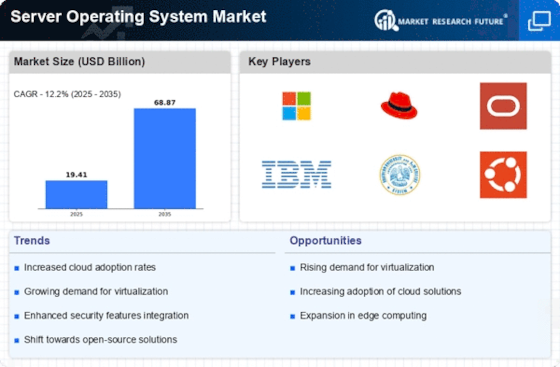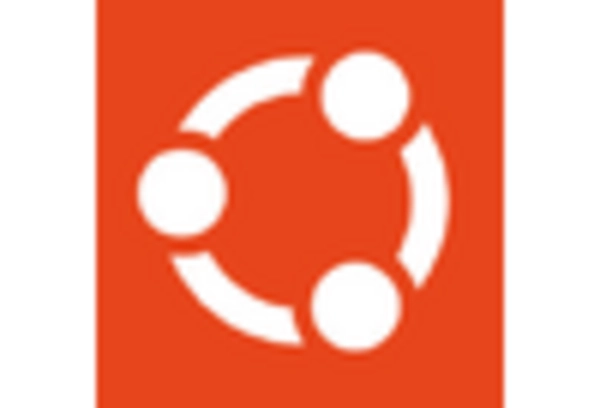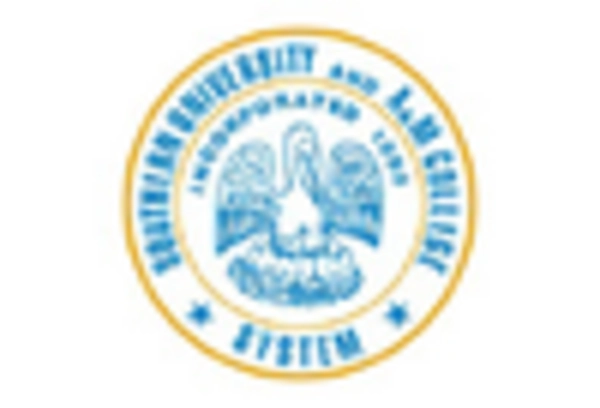Market Analysis
In-depth Analysis of Server Operating System Market Industry Landscape
In today's technology landscape, Hyper-Converged Infrastructure (HCI) stands as a pivotal solution embraced by numerous enterprises globally, offering a multitude of benefits that redefine traditional computing and storage paradigms. HCI represents the convergence of computing and storage infrastructure, streamlined for effortless deployment and management through a unified User Interface (UI). One of the most significant advantages of HCI lies in its elimination of the manual complexities associated with deploying networking and storage infrastructure. By integrating these elements into a single cohesive unit, HCI streamlines deployment processes, reducing operational overhead and complexities. This consolidation translates to simplified management, allowing for a seamless user experience via a unified interface. Furthermore, HCI is engineered to be administered by virtualization or cloud administrators, eliminating the necessity for specialized hardware skill sets in storage, computing, or networking. This shift not only simplifies operational management but also optimizes resource allocation, allowing organizations to reallocate human resources to other critical areas of expertise. An inherent advantage of HCI is its incremental scalability, allowing enterprises to expand their infrastructure in step with their growing needs. This scalability feature aligns seamlessly with a pay-as-you-go cost model, enabling organizations to avoid substantial upfront investments. Consequently, enterprises can tailor their infrastructure expansion according to their specific requirements, optimizing costs and resource utilization. Moreover, HCI's architecture contributes significantly to cost reduction, notably in terms of Capital Expenditure (CAPEX). Leveraging a scale-up/scale-out architecture built upon industry-standard x86 servers negates the necessity for expensive purpose-built networking hardware. This cost-efficient approach enables enterprises to allocate their budgets judiciously, reducing capital expenses while maintaining or enhancing infrastructure capabilities. The growing demand for hyper-converged integrated systems is poised to drive substantial growth in the server virtualization market. HCI's ability to seamlessly integrate computing and storage, simplify management, and reduce infrastructure-related costs positions it as a pivotal catalyst in shaping the future of server virtualization. As organizations increasingly prioritize efficiency, agility, and cost-effectiveness in their infrastructure strategies, HCI emerges as an indispensable solution. Its ability to streamline operations, reduce complexity, and offer scalability aligns perfectly with the evolving needs of enterprises striving for enhanced performance and flexibility in their IT environments. In conclusion, the adoption of Hyper-Converged Infrastructure represents a monumental shift in modern computing, revolutionizing how enterprises deploy, manage, and scale their infrastructure. The consolidation of computing and storage elements, simplified administration, scalability, and cost-efficiency define HCI's transformative impact on the technological landscape. As the demand for efficient, scalable, and cost-effective infrastructure solutions continues to surge, HCI stands poised to drive significant advancements in the server virtualization market while enabling enterprises to achieve optimal efficiency and agility in their operations.


















Leave a Comment